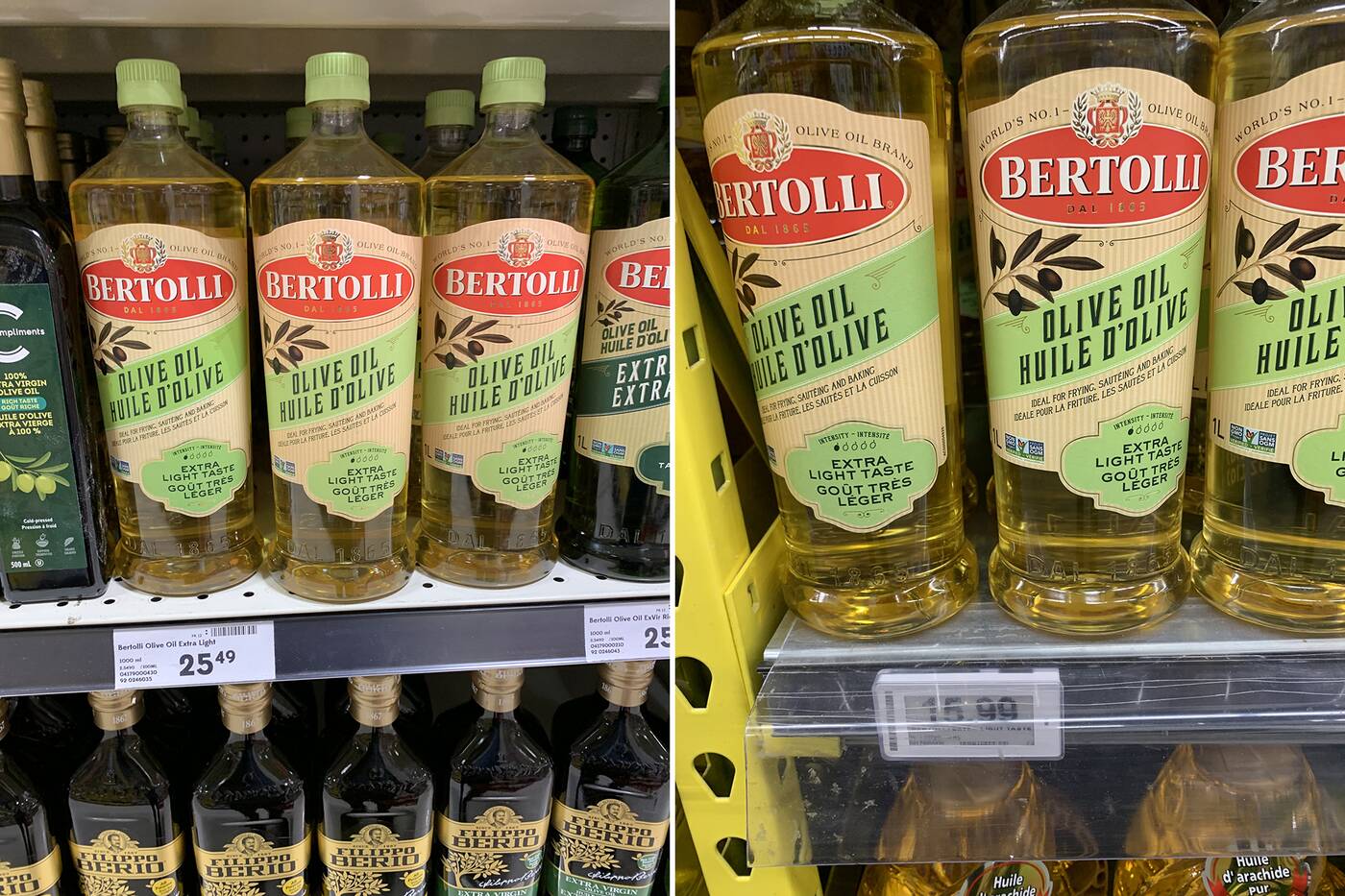
Ontario shopper confounded by huge price difference for same item at stores 1 km apart
An Ontario consumer is speaking out about another case perceived price gouging by Canada's supermarket chains after he spotted the exact same basic staple for two very different prices at two stores in his neighbourhood — stores that are only a kilometre apart on the same street.
During a standard grocery shop, the resident visited his local Foodland at 990 Division Street in Cobourg over the weekend, followed by the town's No Frills down the street at 550 Division Street.
At the first of the two locations, he noticed what he thought was a fairly ridiculously high price for 1 L of Bertolli extra light olive oil, which was on the shelf for a whopping $25.49.
Upon his trip to No Frills, he spotted the exact same bottle of oil for just $15.99 — nearly $10 cheaper.

The same olive oil was more than 1.5 times pricier at Foodland than at a No Frills just down the road.
Although he was floored by the 60 per cent markup, it's something that he says (and that other Canadians would agree) has just become the norm.
"I see it so much here in Cobourg between Foodland, Metro, No Frills and Shoppers Drug Mart," he tells blogTO, calling out the disparity as yet another "poor activity" that the nation's grocery giants practice.
"I've seen many more examples in these two stores specifically," he adds, joking that he "can't even afford to enter the Metro in town," so he hasn't conducted any price comparisons there lately.
Foodland is owned by Empire, the parent company of Sobeys, and No Frills is, of course, the discount subsidiary of Loblaw Companies Ltd.
While these companies have pointed to slowing food inflation and said, in the case of Loblaws, that they are making "ongoing efforts to lower food prices," customers just aren't buying it.
Many don't believe there is any good reason for these contrasts in cost, for recent price increases or for the gradual shrinking of products aside from a hunger for more profits at the expense of the consumer.
And, food suppliers that chains like Loblaws have blamed for higher price tags on the shelf are being hurt by fee hikes and other problematic practices — like billing suppliers for store renovations that have nothing to do with them — too.
submitted to blogTO by Mike Fluke
Latest Videos
Latest Videos
Join the conversation Load comments







